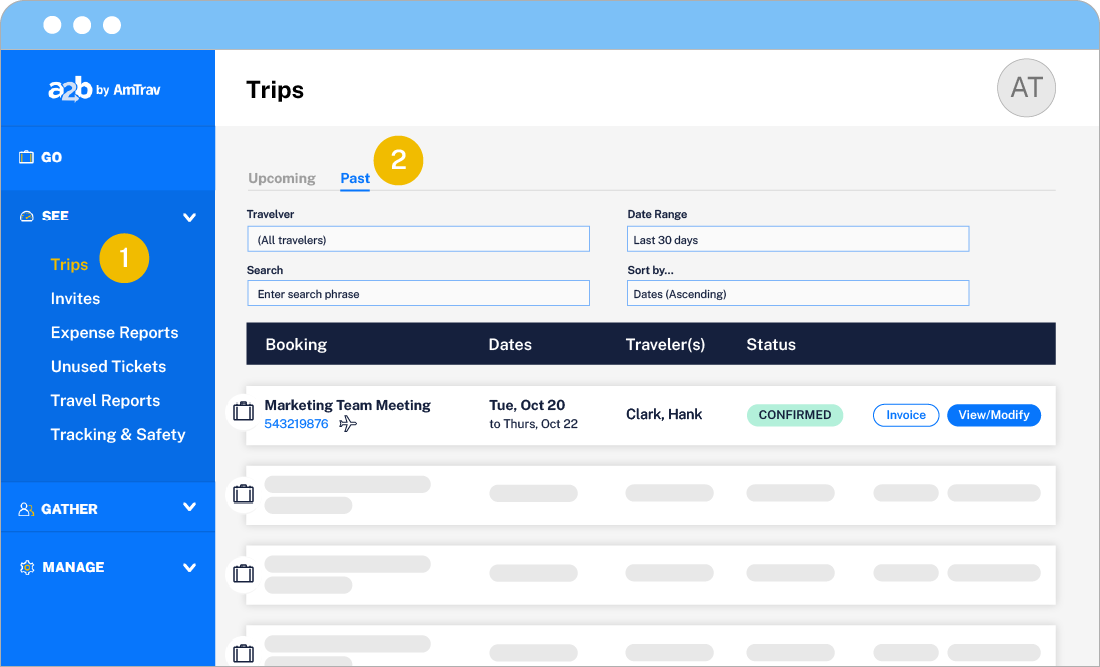All About Southwest Airlines’ Rapid Rewards Business
Southwest Airlines always prioritizes the customer. And for its business customers, Southwest offers a loyalty program that allows your business and...

Simply put, you need to have solid data in order to properly manage and evaluate the success — or lack thereof — of your company’s travel policy. This is true of any aspect of your business. However, since companies rarely analyze their travel policies the way they do in other areas of operation and travel costs usually come secondary only to payroll and rent, efficiency is key.
The first step to properly managing your company’s travel policy comes with recognizing obstacles and setting goals. Then, you must identify the metrics that best track progress to reach the identified goals. Being mindful of key performance indicators — such as spend under contract, the use of approved booking tools and lowest-logical airfare compliance — helps determine if your company’s travel policy is working as it should, as well as identify areas for improvement.
It’s much easier to track down data in companies that have managed programs, for which employees must use approved vendors or booking channels. That’s because travel management companies (TMCs) generally have the data at hand. If you do not work with a TMC, you’ll have to track that data down and benchmark your company’s travel costs in relation to market indexes and/or industry peers yourself, a task that’s easier said than done. Things to evaluate include total spend (and how it’s allocated), average trip cost, the metrics of traveler behavior and the use of approved vendors versus vendor non-compliance.
It’s also important to consider whether or not employees using unmanaged travel comply with cabin rates, or if they opt for travel in a higher class than is allowed. Consider, too, how far in advance they’re booking, since 14 days to a week is most common. Yet, there is a cutoff date to saving on advanced purchases. It’s true that ticket prices may drop close to a travel date, coupled with the fact that cancellations are possible. Essentially, companies therefore need to consider re-booking rates and whether or not it’s best to mandate purchase windows.
If your company does in fact use a TMC, consider how much of total travel costs go to your business travel agency of choice, and assess if the negotiated savings versus fees make sense. Consider if the TMC’s booking visibility outweighs potential employee frustration about policy restrictions. If it works for you, great. If not, know that you still need to have a reliable way to track all travel spending when you go at it alone.
Whatever route you’ve chosen — managed versus unmanaged travel — it’s essential to have an effective measurement of key performance indicators in place and the ability to fully understand the travel data so you can draw effective conclusions. Only then can you decide if it’s time to more tightly manage travel solutions or loosen travel policy restrictions. Employees who are too frustrated with a flexibility may, in the end, undermine the goals of your company’s travel policy — and along with it, cost savings.
By: Jennifer O.

Southwest Airlines always prioritizes the customer. And for its business customers, Southwest offers a loyalty program that allows your business and...

Southwest Airlines has long been known for its laser-like focus on the customer experience. The airline offers every eligible company no matter how...

Which hotel did I stay at last week for that conference in DC? Where’s my invoice for my trip, and did I fly to that meeting in Chicago on American...